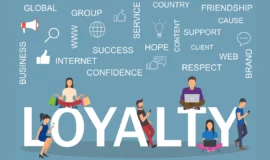
Starting a business might look as simple as just investing money, buying equipment, and starting selling. It sounds exciting but once you really get in, you realize there are plenty of things that you didn’t know or plan for before. It’s not all about selling your items, but there is a huge importance of managing money, people, time, and much more.
So, what skills should a businessman possess? As a business graduate, I have always been interested in entrepreneurship and learned a lot from the stories of successful entrepreneurs. Most of them had some skills in common when they started or they learned some of them soon after starting their business. So, I am here to show you some of the crucial skills every businessman or first time entrepreneur thinking of starting a business must have.
Understanding of Economics
You don’t need to be an expert in economics, but a basic understanding helps a lot. Things like inflation, currency value, and fuel prices affect every business here.
For example, if petrol prices go up, delivery costs rise, which means your product price might have to adjust too. Knowing why that happens helps you plan better instead of reacting in panic.
If you’re still thinking about what kind of business to start, you can check small business ideas in Pakistan to start under Rs. 50,000 on OLX, some of them are easy to try without heavy investment.
Financial Accounting
Money management is something every entrepreneur struggles with at first. You don’t have to learn complicated accounting, but you should always know three things: how much you earned, how much you spent, and what’s left.
Many small business owners in Pakistan mix their personal and business cash. I’ve seen this cause confusion later, especially when calculating profits. Keeping a small notebook or Excel sheet for daily records is enough to start.
Also, it’s worth reading mistakes first-time entrepreneurs should avoid, it shares real issues many new founders face.
Effective Communication & Negotiation
How you talk to people matters. Whether it’s a supplier, employee, or customer, clear and respectful communication can solve half your problems.
Negotiation is another key part. Sometimes you’ll have to discuss prices, delivery timelines, or deals. Being polite but confident helps you get better terms without hurting relationships.
Business Management
Business management is just a fancy way of saying: keeping things in order. You need to plan, organize, and make sure everything runs smoothly, from inventory to marketing.
Even small setups need structure. If you’re running a small clothing store or a food stall, for example, planning stock or tracking sales daily can save you money and time.
If you want to understand how different setups work, read types of businesses in Pakistan, it explains which models suit different goals.
Leadership
Leadership is about more than giving orders. It’s about showing your team what good work looks like. If your people trust you, they’ll put in extra effort.
I’ve noticed that good leaders don’t just talk, they listen, too. They appreciate small wins and guide calmly during tough days.
To learn how successful people maintain their mindset, read 7 common habits of successful businessmen, it’s full of useful lessons.
Emotional Intelligence
Running a business tests your patience. Some days will go well; others might make you want to quit. Emotional intelligence helps you stay balanced.
If a customer complains, for example, reacting with anger won’t help. Listening calmly often turns that customer into a loyal one. It’s all about managing emotions, yours and others’.
Time Management
Time slips away faster than money. Setting priorities makes a huge difference.
I usually make a short plan every morning, the top three things that must be done. That’s it. You’ll be surprised how much smoother your day goes when you don’t try to do everything at once.
Team-Building
Even a small team needs chemistry. Hiring the right people is important, but keeping them motivated is what builds loyalty.
You don’t always need a big team. Many businesses in Pakistan now outsource work like design, marketing, or accounting to save costs. If you’re considering that, you’ll find business process outsourcing explained with examples and benefits quite helpful.
Problem-Solving
Problems are part of the job. The real skill is how fast and calmly you handle them.
Let’s say your supplier delays an order or a product doesn’t sell, instead of stressing, ask “What can I do right now?” That mindset shift changes everything.
The best entrepreneurs don’t avoid problems; they fix them one step at a time.
Sales and Marketing
Even if you have the best product in town, it’s useless if people don’t know about it. Marketing helps people discover you, and sales help you connect with them.
You don’t need a huge budget, just creativity and consistency. Check budget-friendly ways for small business branding for practical ideas that actually work in our market.
Conclusion
Business is not a straight road, it’s full of turns and surprises. The good thing is, every skill you learn makes the journey easier.
Start with small steps: understand money, manage your time, and communicate better. These skills don’t just grow your business; they shape your mindset.
As someone who’s studied business and seen real-world examples, I can say this: the people who keep learning and improving always stay ahead. Success doesn’t need luck, it needs skill, patience, and consistency.








Leave a Reply